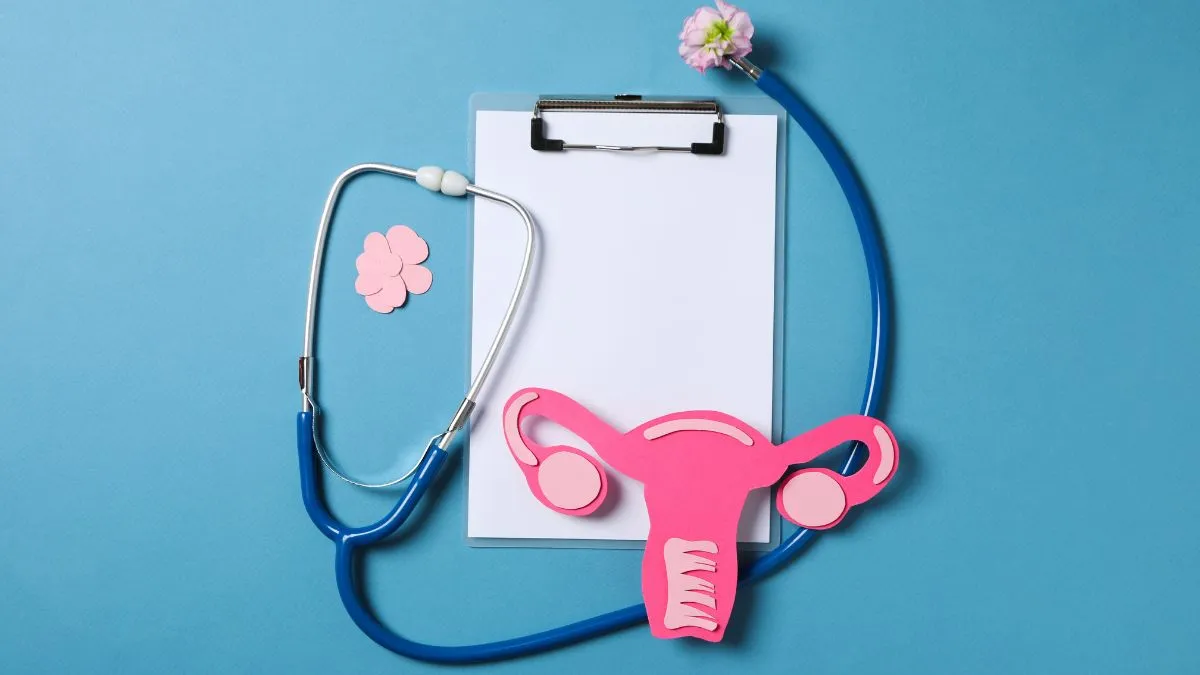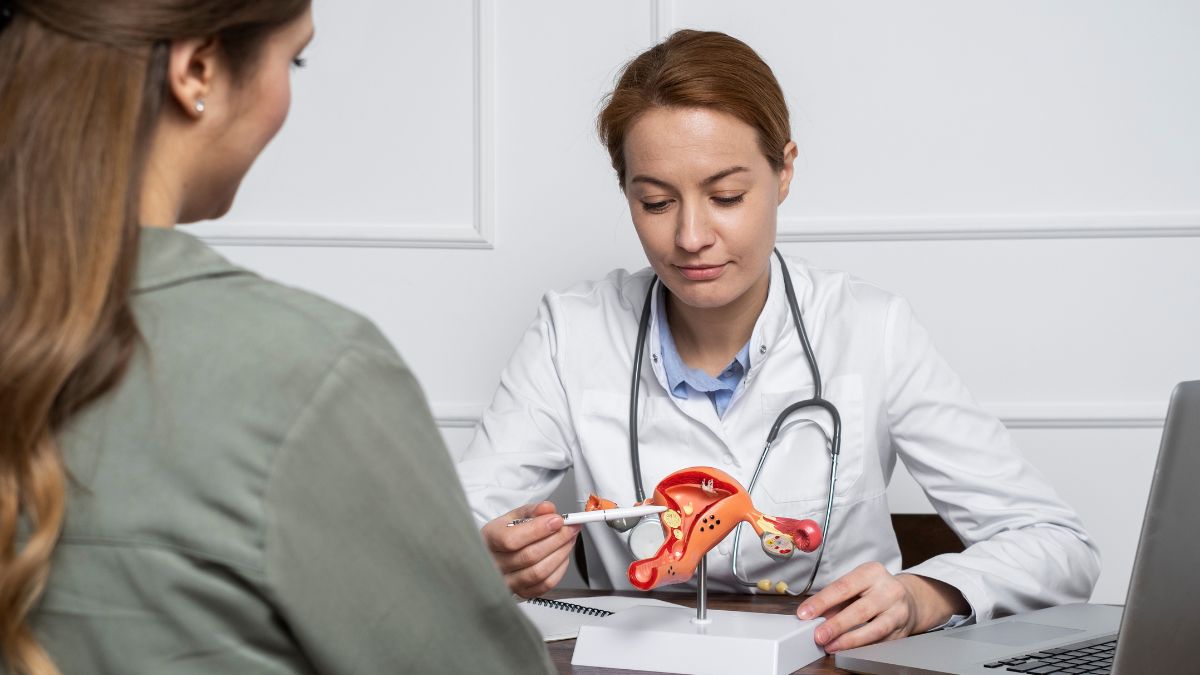
Endometriosis is a disorder in which a uterine tissue that generally lines the uterus grows someplace else. This condition can cause pain in the pelvic region, trigger menstrual irregularities and makes it hard to get pregnant. Typically, endometriosis begins with a woman's first period, however, the symptoms often present gradually and the condition is diagnosed later, mostly after the age of 25. Considering this disorder is common with approximately 42 million Indian women affected with endometriosis, we spoke to Dr Ashish Gawde, Country Medical Director, Bayer Pharmaceuticals and
Dr Bandana Sodhi, Director Obstetrics & Gynaecology, Fortis La Femme, GK, Delhi to get answers to some most-asked questions on this topic.
Table of Content:-
Why is it important to raise awareness about endometriosis, especially among young women and those planning a pregnancy?
Dr Ashish: Awareness is the first, and most critical step in addressing the widespread underdiagnosis of endometriosis. Many women, particularly young women, may not recognise common symptoms of endometriosis like chronic pelvic pain or heavy menstrual bleeding and delay seeking medical attention. This leads to significant diagnostic delays which impact physical, emotional, and social well-being. Early diagnosis is essential to improve health outcomes and prevent progression of the condition.
Through awareness initiatives focused on education, multilingual counselling, and self-assessment tools, women are better equipped to recognise symptoms and seek timely care. Timely diagnosis combined with access to innovative, evidence-based therapies is key to improving quality of life. Modern treatment options such as intrauterine systems and oral hormonal therapies, offer effective and minimally invasive symptom management, helping reduce dependence on surgical interventions.
Are there any increased risks or complications during pregnancy due to endometriosis?
Dr Bandana Sodhi: Endometriosis can create challenges for a healthy pregnancy by affecting fetal growth. While it does not cause birth defects, the condition is linked to hormonal imbalance, persistent inflammation, and reduced blood flow in the uterus. These factors can interfere with placental development and lead to complications such as preeclampsia (a pregnancy-related complication marked by high blood pressure and potential organ damage), early delivery, or adhesions (bands of scar tissue that can cause organs to stick together abnormally). Research indicates that women with moderate to severe endometriosis face a higher likelihood of such outcomes, making early identification and regular monitoring essential. With timely intervention and a tailored care plan, most risks can be addressed effectively, ensuring maternal wellbeing. Increasing awareness and education during the reproductive years remains key to improving long-term health outcomes.
Can endometriosis impact the growth or development of the baby?

Dr Bandana Sodhi: Pregnancy in women with endometriosis carries higher-than-average risk due to the condition’s underlying biological effects. Endometriosis can disrupt fetal development due to chronic inflammation and hormonal imbalances, which affect uterine receptivity and placental function. This can increase the risk of complications like low birth weight, growth restriction, and placental issues such as previa (when the placenta partially or completely covers the internal opening of the cervix) or abruption (when the placenta detaches prematurely from the uterus). Additionally, women with endometriosis are more likely to experience preeclampsia and other pregnancy-related challenges. However, with proactive prenatal care, including personalized monitoring and early interventions, these risks can be managed effectively, ensuring healthier outcomes for both mother and baby.
Also Read: IVF And Endometriosis: How To Manage Symptoms And Improve Success Rate
How does timely diagnosis and intervention for endometriosis support better reproductive health outcomes?
Dr Bandana Sodhi: Endometriosis is a progressive condition in which tissue similar to the uterine lining grows outside the uterus, resulting in chronic pelvic pain and heavy menstrual bleeding. Due to low awareness and normalization of menstrual discomfort, it is often underdiagnosed or diagnosed years after symptoms appear, impacting a woman’s well-being and reproductive health.
Timely diagnosis enables access to treatment options for endometriosis like hormonal therapies, pain management, and surgical interventions which reduce symptoms and prevent complications. Early intervention also helps prevent progression to severe stages that may lead to infertility, the most significant reproductive challenge in endometriosis. Education programs, including counseling, further support therapy adherence and long-term condition management.
What role does patient education play in improving the journey of women living with endometriosis?
Dr Ashish: Patient education helps women better understand their condition, recognize symptoms early, and engage meaningfully with their treatment plans. With the right information, patients are more likely to seek timely care, adhere to therapy, and communicate effectively with their healthcare providers. This can reduce delays in diagnosis and empower women to manage their condition proactively rather than suffer in silence.
Also Read: Period Pain Or Something More? Expert Answers If It Could Be Endometriosis
Additionally, patient support programs that combine education with multilingual counseling and adherence-focused interventions enable women to better understand and therefore, manage their condition. These programs not only offer medical guidance but also reduce the burden of ongoing therapy—financially and emotionally. With the right support, women are more likely to remain on treatment and effectively manage their condition in the long-term.
What are some barriers women face in getting the right diagnosis and support for conditions like endometriosis and how can we address them?
Dr Bandana Sodhi: Several barriers prevent women from receiving the correct diagnosis and support for endometriosis. One of the main challenges is lack of awareness, both among patients and healthcare providers. The symptoms of endometriosis are often dismissed as normal menstrual discomfort, leading to delayed diagnosis. Additionally, women in rural or underserved areas may face challenges such as limited access to healthcare providers, proper diagnostic tools, and information about the condition.
Addressing these barriers requires a multi-faceted approach, including enhancing doctor education through upskilling programs, improving access to diagnostic resources, and increasing public awareness through targeted campaigns. Collaborative initiatives, such as those that involve NGOs and local healthcare practitioners, can help ensure that women in all areas have access to the necessary care and information.
How can we better support women navigating endometriosis through different life stages- adolescence, reproductive years, and beyond?
Dr Bandana Sodhi: Supporting women with endometriosis throughout their life stages requires a proactive, multi-faceted approach. Early diagnosis is crucial, especially during adolescence. Educating young women and their families about recognizing signs and seeking medical advice can lead to timely intervention, which can significantly improve long-term health outcomes.
As women enter their reproductive years, managing symptoms such as pelvic pain and heavy menstrual bleeding is critical, not just for daily functioning but also because endometriosis can affect fertility. Empowering women with information and access to effective treatments such as hormonal therapies and non-invasive options enables them to make informed decisions. Beyond reproductive years, support should include managing hormonal changes with a focus on maintaining health and quality of life. Implementing programs that educate healthcare providers and patients on alternative treatments to hysterectomy and other invasive options can also help provide better long-term solutions.
What should you discuss with your gynecologist if you have endometriosis and are planning a pregnancy?
Dr Bandana Sodhi: When planning a pregnancy with endometriosis, it’s essential to engage in an open and thorough conversation with your gynecologist about how endometriosis may affect your reproductive health. Start by discussing the nature and severity of endometriosis and its potential impact on your health. Your gynecologist can explain how the condition might influence pregnancy and what monitoring might be necessary. A clear discussion of treatment options and symptom management will help meet your immediate and long-term health goals for a healthier pregnancy.
Additionally, addressing lifestyle factors like diet and stress management can positively impact your health. Mental and emotional well-being should also be considered, with support systems and counseling helping to navigate the challenges of pregnancy planning. A personalized care plan tailored to individual needs allows women to approach pregnancy with confidence and clarity, ensuring physical and emotional health are prioritized.
Final Word
The guidance provided in this piece is meant to help the reader with an understanding of the condition. It is always recommended to consult your doctor on any health condition you may have.
Also watch this video
Read Next
From Sweets To Salty Snacks: Expert Explains What Your Period Food Cravings Reveal About Your Health
How we keep this article up to date:
We work with experts and keep a close eye on the latest in health and wellness. Whenever there is a new research or helpful information, we update our articles with accurate and useful advice.
Current Version